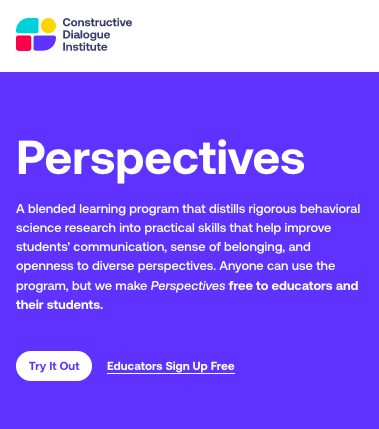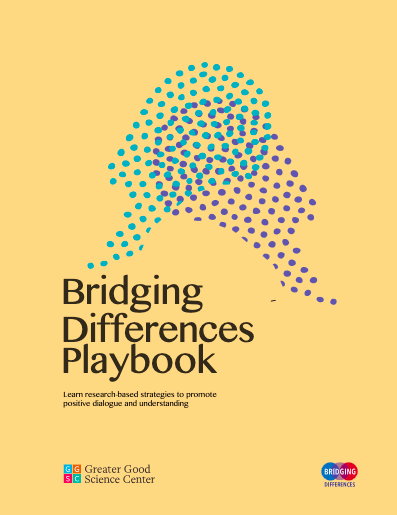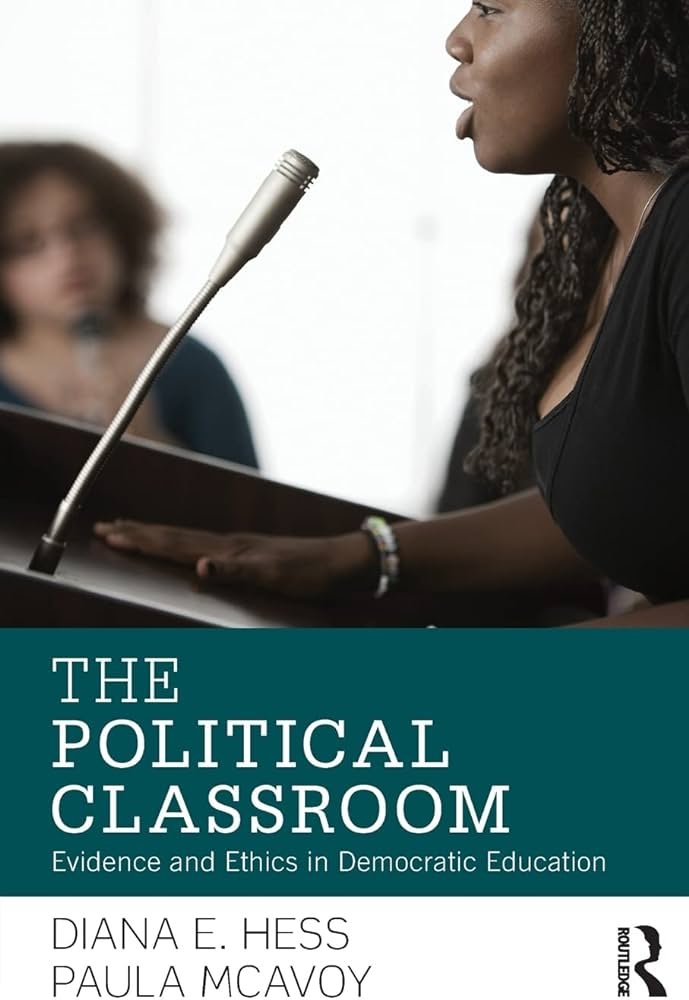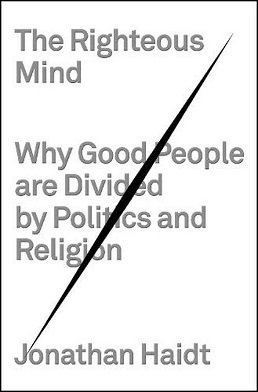
Resources
Brief Videos for Classroom Use
This engaging four-minute video from Beyond Conflict demonstrates that Americans are not nearly as divided as we think we are.
Five-minute video from the Greater Good Science Center in which political opposites discover a shared sense of humanity. Great inspiration for kids and adults alike!
This inspiring message from Utah’s gubernatorial candidates is only a minute long!
Six-minute summary of the “America in One Room” project, in which a politically diverse group of hundreds of Americans from across the country convened for a weekend of cross-partisan conversation.
Seven-minute introduction to the power of storytelling to engender empathy, as implemented by Narrative Four.
Watch the first 3:40 of this brief video from the Constructive Dialogue Institute to consider how upbringing affects one’s lasting worldview.
Six-session curriculum for middle- and upper-school students from the Better Arguments Project (provide your contact info to complete the download process). Facilitate productive conversations across lines of difference.
Curricular Materials
Eight-session curriculum from the Constructive Dialogue Institute explores the science that explains our divisions and provides suggestions to reach across lines of divide.
“Let’s Talk” from Learning for Justice. A lengthy, detailed guide, full of practical, concrete suggestions to lead critical conversations across all grade ranges.
Bridging Differences Playbook from the Greater Good Science Center. Dozens of lessons to help students reach across ideological divides. Try pages 44-50: “Listen with Compassion” and “Put People Before Politics.”
Another resource from the Better Arguments Project, this one using an exploration of current events to reinforce listening skills.
The First Step follows Van Jones as he tries to push for criminal justice reform in an era of political polarization. This is a powerful film. Spicy language for several minutes starting midway through— otherwise fit for all audiences.
This Land was shot on election day, 2020, by filmmakers across the country. It sounds great; haven’t seen it.
Documentaries
Purple, a 21-minute documentary from Resetting the Table, presents Americans with opposing viewpoints in civil conversation about what divides them.
University of Virginia students produced a good documentary about conversation— and cooperation— among UVA students across the political spectrum. Called Common Grounds?, it’s about 25 minutes long.
Divided We Fall: Unity Without Tragedy is another in this bumper crop of documentaries that show Americans across the political divide discussing (with civility) divisive issues; would be better for high-schoolers than middle-schoolers.
Dialogue Lab: America documents a gathering of politically heterogeneous adults and their structured discussions. A handful of exchanges are quite powerful, and those could be shown to teachers or older students as inspiration for those looking to reach across lines of disagreement.
Undivide Us is one I have not seen. It seems really promising— in the mold of the other documentaries here that gather together people from across the divide for challenging conversation.
AllSides for Schools is a division of AllSides, an organization that provides “balanced news and civil discourse.” This is a good site to visit when looking for a range of news from left, right, and center.
Organizations
Braver Angels is a rapidly growing organization that produces compelling programming— podcasts, webinars, debates, etc.—intended to depolarize America.
Bridging Differences, an initiative of the Greater Good Science Center, is essentially a one-stop shopping center of research and insight into reaching across lines of difference; it’s an excellent resource.
Citizen Connect acts as a clearinghouse for the hundreds of other organizations (such as this one) that are in some way looking to hold the country together. Looking for people that are doing this important work? You’ll find pretty much them all of them listed.
Strangers in their Own Land, by Arlie Russell Hochschild, is unparralled. For a master class in empathy, delivered by a self-professed liberal sociology professor who embeds herself in the lives of disillusioned Tea Party members in Louisiana, read this book.
The Political Classroom, by Paula McAvoy and Diana Hess, contends that classrooms should include dialogue about controversial topics; the book offers advice about how to make that happen.
Books
Jonathan Haidt is a towering figure in moral psychology, and his work has paved the way to better understand the psychological roots of our national divisions. The Righteous Mind explains all.
Uncivil Agreement, by Liliana Mason, helps the reader understand that the intensity of our national, political divide can be explained by the advent of what she calls “mega-identities.” Increasingly, the various aspects of our identity—including political allegiance— are layering on top of each other, reinforcing and amplifying each other, so that political threats cut to the core of our identities; the stakes are raised.
Why We’re Polarized, by Ezra Klein, provides one-stop shopping for those looking for the full story as to why our society is in this predicament.
Although Bill Bishop’s The Big Sort has now been in print for over a dozen years, it remains an authoritative source of information on how we Americans— to our detriment— have increasingly divided and segmented ourselves into like-minded communities.






















